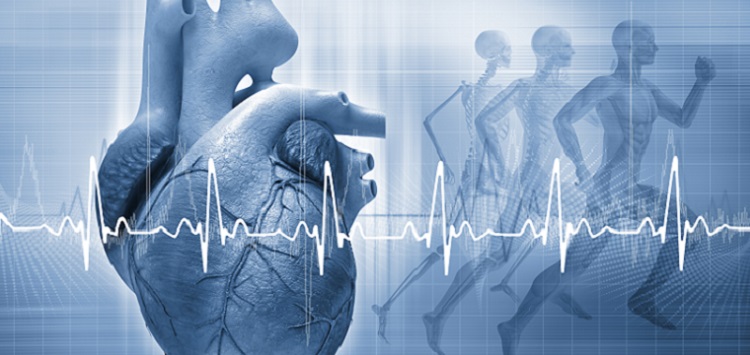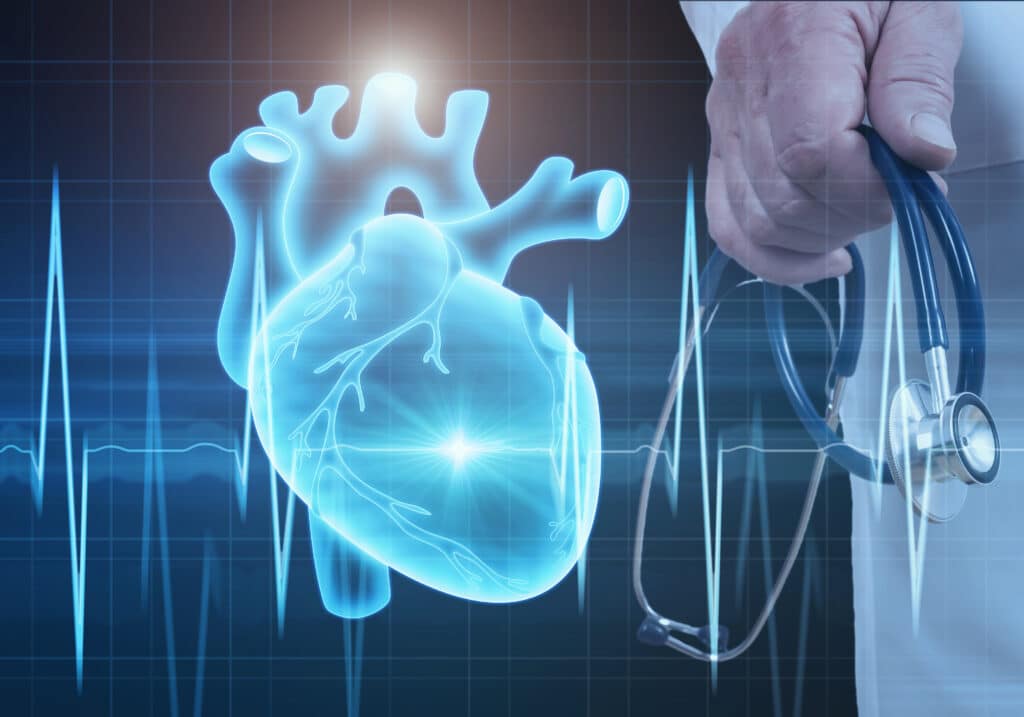Cardiology Jupiter’s clinically-backed advice for reducing cholesterol naturally
Cardiology Jupiter’s clinically-backed advice for reducing cholesterol naturally
Blog Article
Comprehending the Relevance of Cardiology in Modern Healthcare Providers
Cardiology plays a crucial role in modern health care, particularly as heart disease proceeds to be the leading source of death worldwide. Advances in diagnostics and therapy have actually changed patient care, allowing earlier treatments and boosted outcomes. The shift in the direction of preventative cardiology encourages people to handle their health proactively. As technology remains to advance, the combination of ingenious services might additionally redefine cardiology's effect on public wellness, triggering a better examination of arising trends and their implications.
The Frequency of Heart Problem and Its Effect On Public Health And Wellness
Heart illness remains the leading reason of fatality globally, its influence prolongs much beyond individual patients to influence public wellness systems and economic climates. The high occurrence of cardiovascular disease positions a considerable pressure on health care resources, necessitating raised funding for treatment, recovery, and prevention programs. Public health and wellness campaigns must resolve risk elements such as obesity, smoking, and less active lifestyles, which contribute substantially to the rising occurrence of heart conditions.Moreover, the financial concern connected with heart problem is enormous, encompassing not just direct medical expenses but additionally indirect expenses connected to lost performance and premature mortality. Areas encounter challenges in managing these costs, typically bring about differences in health care gain access to and end results. As the populace ages and lifestyle-related dangers proceed to rise, the seriousness for effective cardiology treatments ends up being vital. Dealing with heart disease is not only an issue of individual health and wellness but additionally a critical public wellness priority.
Advances in Cardiac Diagnostics and Imaging Techniques
Recent advancements in heart diagnostics and imaging methods have changed the area of cardiology, boosting the capability to find and check heart problem. Techniques such as heart MRI, CT angiography, and echocardiography have actually come to be progressively sophisticated, providing comprehensive pictures of heart frameworks and features. These modalities enable the early identification of problems like coronary artery illness, heart failing, and valvular disorders.Moreover, developments in non-invasive diagnostics, such as wearable technology and remote monitoring gadgets, have actually encouraged individuals and health care carriers. These tools promote real-time tracking of heart rhythms and various other essential indicators, causing prompt interventions. Additionally, fabricated knowledge is being incorporated into imaging evaluation, enhancing accuracy and efficiency in diagnosis.
Innovations in Therapy Alternatives for Heart Issues
Recent advancements in cardiology have brought about considerable developments in treatment choices for heart disease. These consist of advanced surgical methods that enhance step-by-step results and arising medicines that supply new opportunities for therapy. As the field develops, these advancements play an important duty in enhancing person treatment and results.
Advanced Surgical Techniques
Innovations in medical strategies have actually transformed the landscape of cardiology, using brand-new expect patients with heart disease. Minimally invasive procedures, such as catheter-based treatments, have actually significantly reduced recovery times and healthcare facility keeps. Methods like robotic-assisted surgical treatment boost precision, enabling specialists to browse complicated physiological structures with higher precision. Additionally, developments in imaging innovation assist in real-time visualization during treatments, boosting outcomes. Transcatheter aortic valve replacement (TAVR) exemplifies an advancement in dealing with aortic constriction, allowing shutoff replacement without open-heart surgical procedure. In addition, hybrid techniques that combine surgical and catheter-based techniques give tailored remedies for various cardiac issues. These sophisticated medical methods not just improve patient security however additionally increase treatment choices, underscoring the crucial function of advancement in modern cardiology methods.
Arising Drugs and Treatments
As the landscape of cardiology remains to develop, arising medications and treatments play a critical duty in enhancing therapy alternatives for heart conditions. Advancements such as unique anticoagulants and progressed lipid-lowering representatives have changed the monitoring of heart diseases, significantly lowering person morbidity and mortality. Additionally, the development of genetics therapies and regenerative medication uses appealing avenues for dealing with problems previously deemed irreparable. Scientific trials are constantly exposing the effectiveness of these treatments, pressing the borders of conventional therapies. The combination of digital health and wellness technologies facilitates personalized medication, enabling for tailored treatment plans based on hereditary and lifestyle elements. Jointly, these developments underscore the vibrant nature of cardiology, enhancing individual end results and redefining requirements of treatment in contemporary health care.
The Duty of Preventive Cardiology in Patient Care
Preventative cardiology plays a crucial function in client treatment by concentrating on the identification of danger aspects that add to heart illness. With lifestyle alteration techniques and early discovery methods, doctor can properly decrease the incidence of cardiovascular occasions - Cardiology Jupiter. This aggressive technique not only improves patient results yet additionally advertises lasting wellness
Threat Factor Identification
While cardio diseases continue to be a leading cause of morbidity and mortality worldwide, effective risk element recognition acts as a keystone of precautionary cardiology. Determining danger factors such as high blood pressure, family members, diabetes mellitus, and hyperlipidemia history is important for early intervention. Health care specialists use different evaluating techniques to evaluate these factors, enabling for tailored preventative measures. Additionally, recognizing a client's lifestyle selections, such as smoking and physical inactivity, further informs threat evaluations. This detailed examination makes it possible for clinicians to develop customized care strategies focused on mitigating dangers. By prioritizing threat factor identification, healthcare systems can boost individual results and minimize the general burden of cardiovascular illness, eventually adding to improved public health methods and source allotment.
Way Of Living Alteration Techniques
A multitude of research studies highlights the essential function of lifestyle modification approaches in minimizing cardiovascular disease risk. These methods encompass dietary modifications, increased exercise, smoking cessation, and weight monitoring. By adopting a heart-healthy diet plan abundant in fruits, veggies, whole grains, and lean proteins, individuals can lower cholesterol degrees and high blood pressure. Regular physical task enhances the heart and enhances total cardio health and wellness. Additionally, quitting smoking significantly lowers the threat of heart disease and improves healing rates for those with present problems. Weight administration further adds to cardio health by alleviating other threat factors such as diabetic issues and hypertension. Implementing these lifestyle transforms not just promotes private wellness but also acts as a keystone of preventive cardiology in individual treatment.
Early Detection Strategies
Lifestyle modifications significantly add to lowering cardio illness risks, however they are most efficient when matched with early discovery techniques. Precautionary cardiology highlights the relevance of determining potential heart problems prior to they escalate right into significant problems. Techniques such as high blood pressure surveillance, cholesterol testing, and advanced imaging modern technologies like echocardiograms play essential functions in examining cardiovascular health. Biomarkers and genetic testing also improve the precision of very early discovery, enabling tailored preventative methods. Cardiology Normal cardiac threat analyses empower doctor to intervene proactively, possibly protecting against cardiac arrest and strokes (Cardiology). By integrating these very early discovery approaches right into regular care, patients can gain from timely way of life interventions and targeted treatments, ultimately enhancing outcomes and improving quality of life
Integrating Modern Technology Into Cardiology Practices
As advancements in modern technology continue to reshape different fields, the assimilation of ingenious devices and systems right into cardiology methods has actually become necessary for improving client care and end results. Telemedicine platforms permit cardiologists to keep track of patients remotely, boosting accessibility to care while decreasing the concern on health care centers. Wearable devices, such as smartwatches, enable continual heart rate monitoring, informing both doctors and clients to possible concerns in real-time. Furthermore, man-made intelligence (AI) is being used to assess large quantities of heart information, helping in very early diagnosis and individualized therapy strategies. Advanced imaging techniques, consisting of 3D echocardiography, enhance visit visualization of heart frameworks, resulting in a lot more specific interventions. Electronic wellness documents (EHRs) improve person details management, guaranteeing that cardiologists have prompt accessibility to important information. Together, these technological improvements are changing cardiology, promoting positive monitoring and boosted wellness end results for people with cardiovascular conditions.
The Importance of Patient Education And Learning and Interaction
Patient education and learning and engagement play a crucial role in the administration of cardio health. By equipping individuals with understanding about their conditions, treatment alternatives, and lifestyle changes, doctor empower people to take an energetic duty in their care. This aggressive strategy can bring about improved adherence to prescribed medicines, dietary changes, and exercise routines, ultimately minimizing the risk of complications.Engagement additionally cultivates a strong patient-provider connection, encouraging open interaction and trust. When individuals really feel informed and included, they are most likely to voice worries and ask questions, which can bring about better medical results. In addition, instructional sources, such as workshops or digital systems, can boost understanding and advertise self-management approaches. Generally, focusing on person education and engagement is essential for enhancing cardio wellness, enhancing high quality of life, and lowering healthcare expenses connected with cardio conditions.
Future Patterns in Cardiology and Their Potential Impact

Regularly Asked Questions
What Lifestyle Modifications Can Decrease Heart Problem Danger?
The current question addresses way of living adjustments that can considerably lower cardiovascular disease threat. Cardiology Jupiter. Taking on a well balanced diet plan, participating in routine exercise, preserving a healthy weight, handling tension, and preventing tobacco can notably boost cardio wellness
Exactly How Can I Recognize Very Early Signs of Heart Problems?
Recognizing very early indicators of heart problems includes tracking symptoms such as breast discomfort, lack of breath, tiredness, and uneven heart beat. Timely understanding of these indicators can prompt necessary clinical examination and intervention for much better outcomes.
What Are the Distinctions Between Cardiologists and Cardiac Surgeons?
The differences between cardiologists and heart specialists exist in their functions; cardiologists primarily manage and diagnose heart conditions through non-invasive methods, while cardiac surgeons perform surgical procedures to remedy structural heart concerns. Each plays a vital, unique function.

Just how Frequently Should I Obtain My Heart Health Checked?
The regularity of heart hop over to here wellness checks differs based upon specific risk factors. Generally, grownups need to undergo assessments every one to two years, while those with present problems might need more constant analyses as advised by health care specialists.
What Duty Does Genes Play in Cardiovascular Disease Threat?
Genes greatly influences heart problem danger, with familial patterns showing acquired problems. Particular genes can predispose individuals to hypertension, cholesterol problems, and other cardiovascular problems, highlighting the relevance of hereditary screening in examining heart wellness. Heart disease continues to be the leading cause of death around the world, its impact extends far beyond specific clients to influence public health systems and economic climates. Public health and wellness initiatives must resolve threat factors such as weight problems, smoking, and inactive way of livings, which contribute substantially to the climbing occurrence of heart conditions.Moreover, the financial concern associated with heart disease is tremendous, encompassing not just direct clinical prices however also indirect costs related to lost efficiency and early death. Preventive cardiology plays an important function in client treatment by concentrating on the identification of risk elements that contribute to heart disease. Man-made knowledge (AI) and equipment learning are boosting diagnostics and patient surveillance, making it possible for early discovery of heart diseases. The distinctions in between cardiologists and cardiac doctors exist in their duties; cardiologists largely detect and manage heart problems with non-invasive methods, while heart specialists do surgical procedures to deal with structural heart concerns.
Report this page